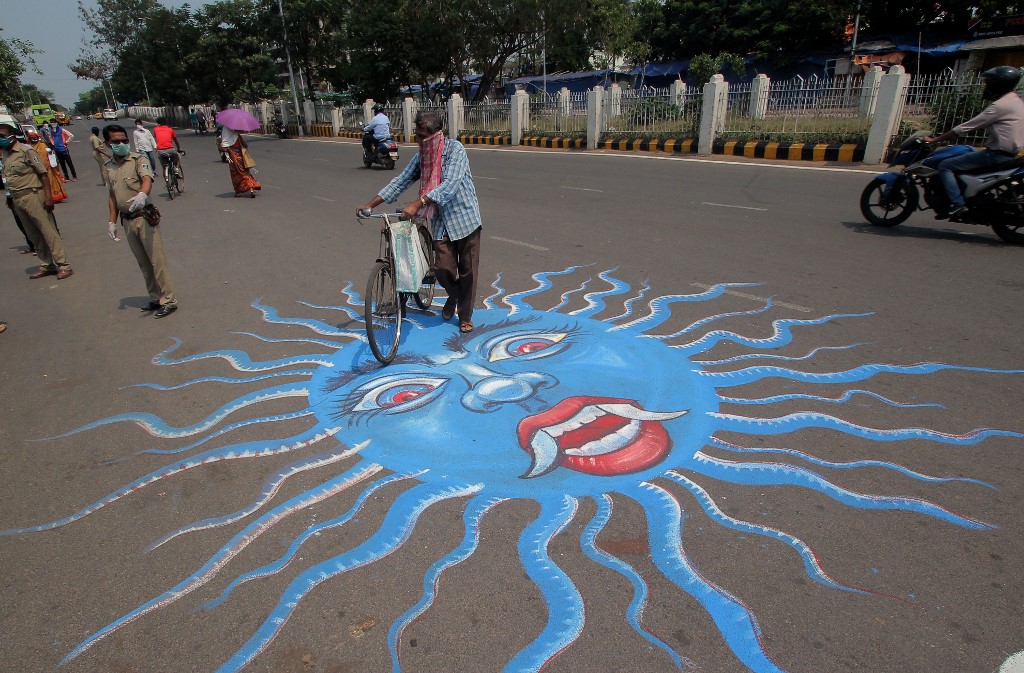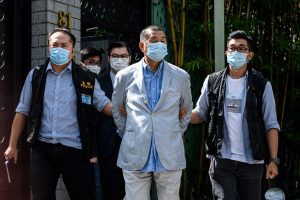India has increased restrictions on direct foreign investment to curb “opportunistic” takeovers and acquisitions of Indian companies due to the COVID-19 pandemic, the trade ministry said.
Under the new policy released on Saturday, foreign investors that share land borders with India – including China – will only be allowed to invest in the country with government approval.
The previous policy restricted the need for government approval for investments from Bangladesh and Pakistan. The nations that share a land border with India apart from Bangladesh and Pakistan are China, Nepal, Myanmar, Bhutan and Afghanistan.
Tourists sent from cave to quarantine
Meanwhile, six foreign tourists who tried to sit out the coronavirus pandemic in an Indian cave have been sent to quarantine at an ashram near a town made famous by the Beatles after running out of money, police said on Sunday.
The four men and two women – from France, the United States, Ukraine, Turkey and Nepal – had been living in the cave near Rishikesh in Uttarakhand state since March 24, police inspector Rajendra Singh Kathait said.
They have now been moved to Swarg Ashram, where they will be quarantined for 14 days – although none have shown coronavirus symptoms.
“Before the lockdown began, they were living in a hotel in the Muni Ki Reti region but they moved to the cave after they ran out of money,” Kathait said. “However, they had saved some money to buy food and other supplies.”
The Nepali man had been helping the group buy essential items, Kathait added.
India has been under a nationwide lockdown since late March, with residents permitted to leave their homes only for essential services such as buying groceries or medicine.
The lockdown was due to be lifted on April 15, but has been extended to at least May 3.
Some sectors – including agriculture and manufacturing – will be allowed to re-open from today, Monday April 20, to ease the hardships of poorer Indians.
About 700 foreign tourists remain in Rishikesh, according to the state’s tourism department, and the government has launched the website “Stranded in India” to help travellers from abroad.
The town was made famous by the Fab Four, who came to Rishikesh in 1968 looking for refuge from Beatlemania, for spiritual enlightenment and to immerse themselves in Indian culture.
Numerous governments, including Germany, the US and Britain, have chartered flights to take their nationals home from India.
The world’s second-most populous nation of 1.3 billion people has reported more than 15,700 coronavirus cases including 507 deaths from the disease.
Sri Lankan bans some imports
Sri Lanka banned a wide range of imports on Sunday as the local currency is hammered by a month-long lockdown caused by the coronavirus pandemic.
The three-month ban on imports will apply to essential raw materials used by local industries, as well as luxury goods – including cosmetics, chocolates and foreign liquor – a government notice said on Sunday.
The Sri Lanka rupee has lost nearly 10% of its value against the US dollar in the past two months as tourism – a key foreign exchange earner for the country – has collapsed, and a sharp fall in expatriate worker remittances.
In March, the government banned the import of cars and luxury vehicles for three months as part of efforts to save foreign reserves, as authorities urged international lenders for a debt repayment moratorium.
Sri Lanka eases lockdown
Sri Lanka lifted a month-long curfew today, easing a lockdown that had helped contain the spread of the novel coronavirus.
The 24-hour indefinite curfew in 19 out of the 25 districts ended at dawn on Monday, replaced by a nine-hour night curfew (8pm to 5am).
President Gotabaya Rajapaksa’s office said on Saturday that the curfews could be eased because of the progress in containing the spread of the virus.
Six districts, including Colombo, will see lockdown measures relaxed from Wednesday, but night curfews will be imposed until further notice.
A ban on public meetings, religious gatherings and processions will remain, with schools and universities still closed until further notice.
AFP
























